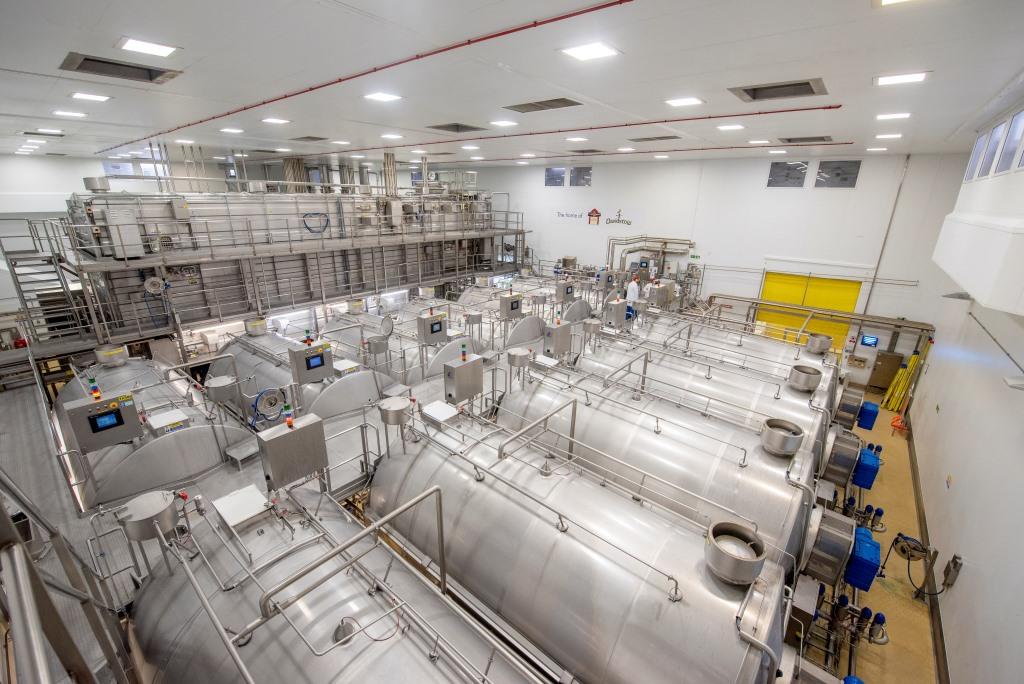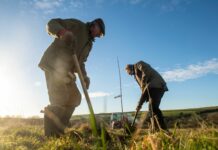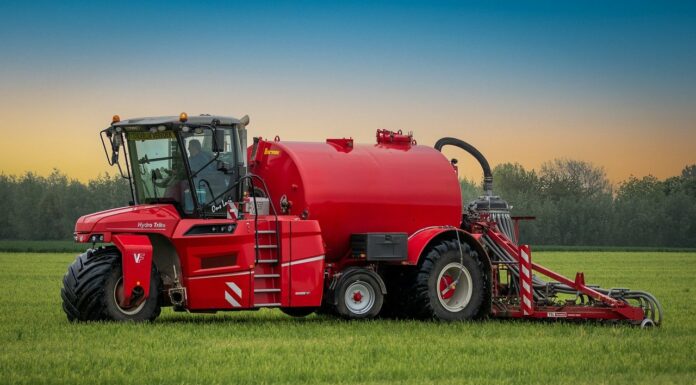Dairy Crest has submitted a planning application to Cornwall Council for a £75 million expansion of its Davidstow creamery in north Cornwall.
The investment aims to boost cheddar production capacity at the plant by 40% – from 54,000 tonnes a year to 77,000 tonnes to support the further growth at home and overseas of Dairy Crest’s leading cheddar brand, Cathedral City, which is made exclusively at Davidstow.
Dairy Crest spends around £150 million a year buying 500 million litres of milk sourced from 330 dairy farmers across the south west, and an additional £50 million in the local economy on wages, transport and other costs.
The expansion would require a further 200 million litres of milk, worth an extra £60 million a year to Westcountry farmers, for the Davidstow plant which is already the biggest creamery in the UK.
Davidstow site director, Dylan Ellis, said: “This project represents a major investment by Dairy Crest that will boost capacity, help with the long -term security of the 200 jobs on site, reduce our environmental impact and create new opportunities for milk suppliers across the region.
“We are already talking to our existing farmers in Cornwall and Devon about increasing their production and we are also looking to expand our milk pool into Somerset. We hope that will give farmers the confidence to invest, knowing that there is a market for their milk.”
Dairy Crest has submitted a ‘hybrid’ planning application for detailed permission to upgrade the creamery, and an outline permission to upgrade its existing waste water treatment plant. The creamery project is mostly focused on installing, replacing and improving equipment within the existing confines of the site, with almost no new building work at the creamery.
Upgrading the waste water treatment plant is aimed at recycling more of the approximately 3,000 tonnes of water the creamery uses each day to fully remove reliance on South West Water. Currently around half is recycled. The new treatment plant will also address issues of odour to reduce any impact on neighbours.
Dairy Crest said the design of the treatment plant will be determined once it has agreed a revised environmental permit with the Environment Agency to take account of future increased cheese production and stressed that the plant would be designed to be fully compliant with agreed limits.
A parallel planning application will shortly be submitted by solar energy developer Lightsource BP for a solar park next to the creamery that will generate 10% of its current annual demand for electricity. This will reduce the site’s carbon footprint by some 1,200 tonnes of CO2 per year, equivalent to the emissions of almost 500 typical UK households.
Cornwall Council will formally consult on the applications before making a decision later this year.








